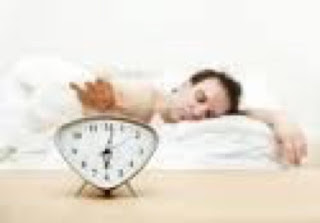Having problems getting to sleep or maintaining uninterrupted sleep? You are not alone!
There are many natural, inexpensive, and non-invasive/drugless strategies you can implement to help yourself get the sleep you desire and need!

The Triad of Health: SLEEP IMPROVEMENT
Physical/ Structural TIPS
- Chiropractic care: balances the nervous system by calming sympathetic energy (flight or fight) and stimulates parasympathetic energy (relax, restore, regenerate). Massage is good too!
- Properly tend to your injuries: body pain and arthritis are major contributors to insomnia.
- Exercise: A minimum of 20 minutes per day; but not within 2 hours of bedtime.
- Mattress: not too old and soft, not too hard and nonconforming; helps control motion. (see The Right Mattress )
- Pillow: correct height for your size, conforms to your shape, keeps spine straight.
- Don’t fight daytime sleepiness; nap for 30 minutes or less; earlier in the day is preferable than later.
- Use a neti pot to restore proper health and air passage to your airways as well as reduce allergen reaction. (see Sinus Irrigation or Neti )
- Do some yoga or easy stretching an hour before bedtime.
- Have your kidneys, thyroid, hormone levels checked for possible imbalances.
- Lose weight, if needed.
Mental/ Emotional TIPS
- Meditate and/or pray daily.
- Practice letting go of problems, allowing your “higher power” to work things out; refuse to worry.
- Let go of offenses held against yourself and others.
- Practice gratitude and count your blessings. (rather than sheep)
- Hide your clock or commit to not looking at it at night. If available, switch the light level to low.
- Don’t talk about how you “can’t sleep”; reprogram your mind to believe you can sleep peacefully.
- Change unsatisfactory lifestyle factors: job, recreation, hobbies, weight, family patterns, routines, relationships.
- Consider that you are worth every effort you take to help yourself be as healthy and as functional as possible.
- Consider getting some spiritual or psychological guidance to solve problems, or at least be sure to spend some time talking with a trusted friend.
- Use your bedroom only for sleep and lovemaking; recondition your mind for proper bedroom use.
- If you watch TV at night, choose low-key nature or arts programs. For some, this would be best done in a chair and not in the bedroom.
- Create a routine for sleep preparation, beginning a half-hour before bed. Include light stretching to reduce muscle and joint aches.
- Reset your internal clock, gradually, to awaken between 6 and 7 a.m. and retire between 10 and 11 p.m.
- In bed, calm your mind by using a mantra such as “relax”, “calm”, or “peace”.
- Write down all your “to-do’s” and worries/concerns which may be occupying your mind; tell yourself you’ll take care of them the next day.
Chemical/ Nutritional/ Environmental TIPS
- Take a warm Epsom salt bath with candlelight and soft scents of jasmine, lavender, rose, marjoram, or hops before bed.
- Eat your evening meal at least 2 hours before bedtime; include enough protein to sustain blood sugar for 8 hours; enough carbohydrate to soothe the nerves.
- Get your bed-partner to address their snoring or sleep apnea issues.
- Eliminate allergens from the bedroom; keep it clean.
- Do not allow pets into the bedroom.
- Avoid sugary, caffeinated, salty, spicy, rich or fatty food and drinks anywhere near bedtime, especially.
- Alcohol and nicotine both interfere with proper sleep even though they may initially sedate you.
- Keep your bedroom tidy, noise-free, dark, cool.
- Avoid exposure to electromagnetic frequencies from electronics at work and home, especially in the bedroom. Keep devices at least 3 feet from you.
- Find out if a medication you are taking may have stimulant effects on metabolism or the nervous system. Ask about alternatives.
- Five to ten minutes of deep, easy breathing can raise natural melatonin by 500%.
- There are many helpful herbs, homeopathic remedies, and nutritional supplements to help sleep; consult a knowledgeable practitioner for help in choosing them.
- Get exposure to sunlight to stimulate the pineal gland, earlier in the day, while avoiding too much light later in the day, especially electronic light/screen light.
- Most sleep-inducing drugs create dependence and have toxic side effects.